Preparing for long-term care doesn’t have to feel overwhelming. With the right Medicaid planning strategies, you can take control of your financial future, safeguard your family’s assets, and make confident decisions about care. Many families are surprised to learn that they can qualify for benefits and protect their legacy at the same time.
At Antanavage Farbiarz, PLLC, we help Pennsylvania families navigate Medicaid’s complex rules and eligibility requirements every day. Whether you are planning years in advance or facing an immediate need for nursing home care, understanding your options now can make all the difference later.
Why Medicaid Planning Matters
Long-term care can be costly, and planning becomes essential. Here in Berks County, Pennsylvania, the average nursing home expenses often exceed $15,000 per month or about $500 per day. Thankfully, families have options. While Medicare doesn’t cover extended stays, Medicaid can provide significant financial relief when the right planning steps are in place.
Medicaid is a joint federal and state program designed to help individuals access quality long-term care. Though the application process can be complex, the right guidance makes it far more manageable. By implementing effective Medicaid planning strategies early, families can protect their hard-earned assets while ensuring their loved ones receive the care they deserve.
At its core, Medicaid planning is about peace of mind. It’s a legal and ethical way to organize your finances so you can qualify for assistance without sacrificing your family’s financial security.
Understanding the Medicaid “Spend-Down”
Before exploring Medicaid planning strategies, it helps to understand how eligibility works. Medicaid looks at both income and assets. In Pennsylvania, a single applicant generally cannot have more than $2,000 in countable assets, though certain exemptions apply.
“Spending down” means using excess assets to pay for things that benefit the applicant, such as medical care, home improvements, or debt repayment, before applying for Medicaid. However, it must be done correctly. Improper transfers or gifts within the five-year “look-back” period can cause Medicaid penalties.
That is why strategic planning matters. The right approach helps you spend down safely, preserve assets for your spouse or heirs, and avoid disqualification.
Key Medicaid Planning Strategies for Pennsylvania Families
Every situation is unique, but certain legal and financial tools consistently help families protect assets while qualifying for benefits. Below are some of the most effective Medicaid planning strategies used by experienced elder law attorneys.
1. Establishing a Medicaid Asset Protection Trust (MAPT)
A Medicaid Asset Protection Trust is one of the most powerful Medicaid planning strategies available. This irrevocable trust lets you transfer assets such as your home or savings into a trust that is no longer counted as your personal property for Medicaid eligibility.
- Once assets are transferred, you cannot directly access them, but you can still receive income from them under trust terms.
- After five years, those assets are protected and do not count against eligibility.
- Your heirs can inherit those assets later without going through probate.
By setting up a MAPT early, you preserve wealth and ensure future care needs are covered.
2. Protecting the Family Home
Many people fear losing their home to nursing home costs, but that is not always the case. Several Medicaid planning strategies can help protect your primary residence:
- Life Estate Deed: Retain the right to live in your home for life while transferring ownership to your heirs.
- Transfer to a Caregiver Child: If a child has lived with you and provided care for two years, you may transfer the home to them without penalty.
- Irrevocable Trust: Moving the home into a trust can keep it from being counted as an available asset.
3. Converting Countable Assets Into Exempt Assets
Another effective Medicaid planning strategy involves converting non-exempt assets into exempt ones, such as:
- Paying off a mortgage or home repairs
- Purchasing a prepaid funeral plan
- Buying a reliable car
- Investing in medical equipment or home modifications
These legitimate transactions reduce countable assets while improving your quality of life. Always document these expenses carefully.
4. Planning for Married Couples
When one spouse needs nursing home care, the healthy spouse (called the “community spouse”) can keep part of the couple’s assets and income. Proper planning ensures both remain financially secure.
- Spousal Resource Allowances: Helps the community spouse retain the maximum allowed assets.
- Income Diversion: Shifts income to the healthy spouse to prevent hardship.
- Spousal Refusal: In limited cases, allows evaluation of only the institutionalized spouse’s resources.
5. Creating a Caregiver Agreement
A caregiver agreement is a written contract that pays a family member for providing care services such as meals, transportation, or personal assistance. When structured correctly, it:
- Allows asset transfers through legal compensation
- Provides documentation to satisfy Medicaid rules
- Helps reduce countable assets while rewarding family caregivers
6. Using Annuities for Asset Conversion
Medicaid-compliant annuities can convert excess assets into income for the healthy spouse. When structured correctly, they help families retain significant resources without violating Medicaid rules.
7. Timing and the Five-Year Look-Back Rule
Medicaid reviews all financial transactions made within five years before applying for benefits. Any improper gifts or transfers can lead to a penalty period. That is why starting your Medicaid planning strategies early gives you the most flexibility and protection.
When Should You Start Medicaid Planning?
Ideally, families should begin Medicaid planning strategies years before care is needed. Early planning (five to ten years before retirement) provides the best options. However, even if care is needed immediately, it is not too late. Experienced elder law attorneys can still help preserve assets through crisis planning.
The Role of an Elder Law Attorney
Medicaid laws are complex and vary by state. An experienced elder law attorney can design a personalized plan that fits your goals while meeting every requirement. Your attorney will:
- Review assets, property, and transfers
- Explain eligibility rules and documentation needs
- Recommend the best legal tools for your situation
- Coordinate trust creation, allowances, and applications
- Handle appeals if benefits are denied
Common Misconceptions About Medicaid Planning
Myth: You must give away everything to qualify.
Truth: Proper Medicaid planning strategies can protect much of your wealth.
Myth: It is too late to plan once nursing home care begins.
Truth: Crisis planning can still help preserve assets.
Myth: Creating a trust disqualifies you.
Truth: Some trusts count against eligibility, but Medicaid Asset Protection Trusts do not.
Myth: Medicaid will take your house.
Truth: Many exemptions protect homes where a spouse or dependent still lives.
Coordinating Medicaid Planning with Estate Planning
Smart Medicaid planning strategies work together with estate planning. A comprehensive approach ensures both long-term care and legacy protection. Attorneys align powers of attorney, wills, and trusts to ensure consistency, prevent disqualification, and protect heirs.
Why Work With Antanavage Farbiarz, PLLC
At Antanavage Farbiarz, PLLC, we believe planning ahead is empowering. Our attorneys bring deep knowledge of Pennsylvania Medicaid laws and decades of experience in estate and elder law. We focus on protecting what matters most: your home, savings, and peace of mind.
- Compassionate, personalized guidance
- Legally sound and ethical strategies
- Clear communication at every step
- Proven results for Pennsylvania families
Protect What Matters Most
You have worked hard to build your home, savings, and financial stability. Do not risk losing it to long-term care costs. With proactive Medicaid planning strategies, you can secure your future and protect your legacy.
Whether you are planning early or facing immediate care decisions, Antanavage Farbiarz, PLLC is here to help with experience, compassion, and integrity.
Contact Antanavage Farbiarz Today
If you are ready to explore your options or have questions about Medicaid planning strategies, contact our team today. We will help you understand your choices and create a personalized plan that fits your family’s needs.
Stay up to date with the latest tips from Antanavage Farbiarz, PLLC by following us on Facebook and LinkedIn.

